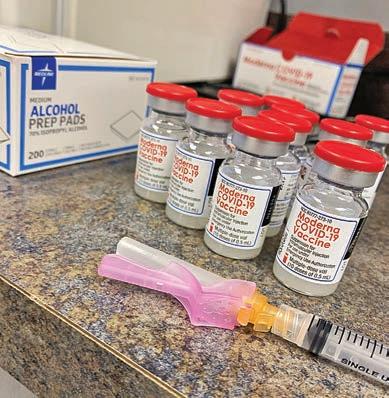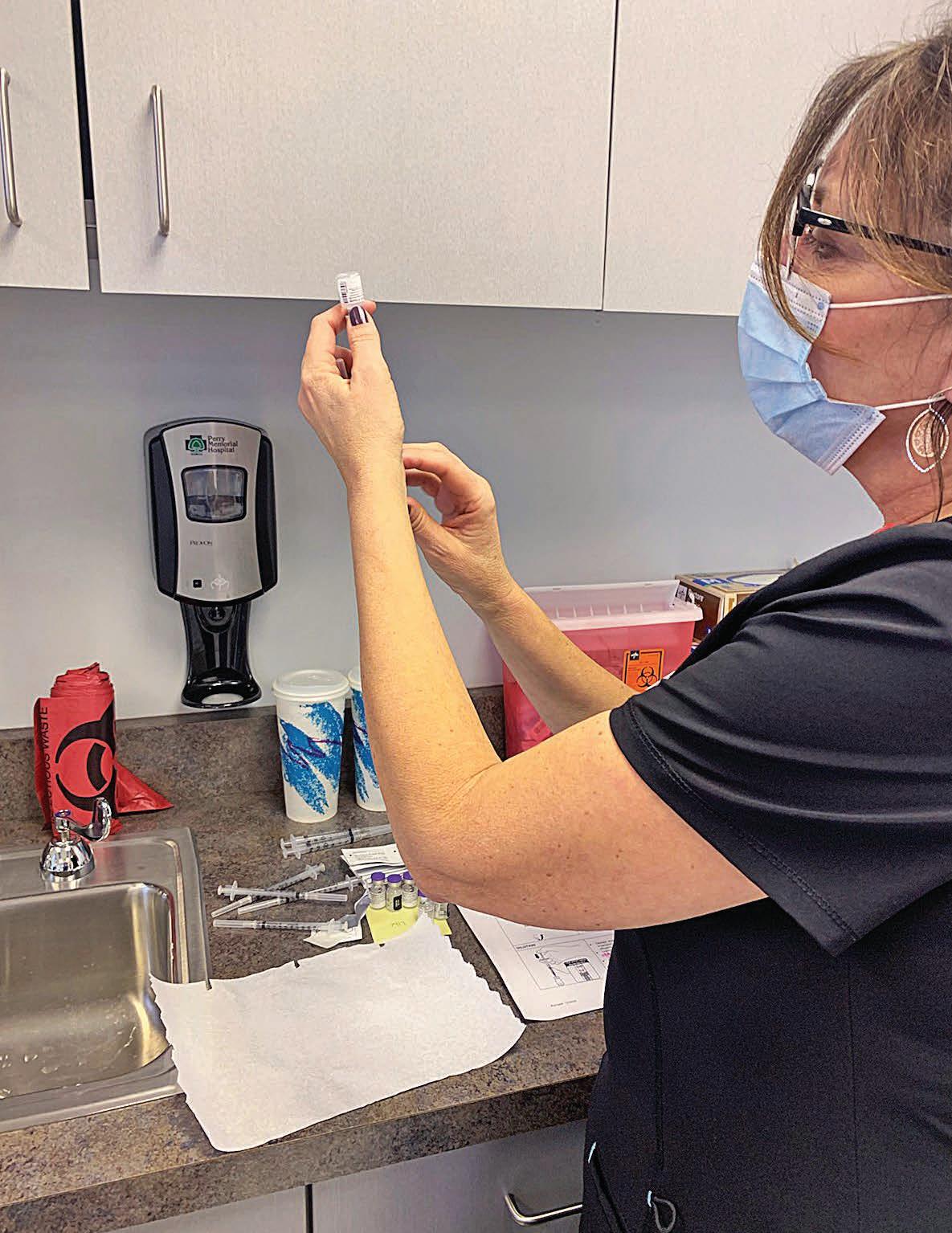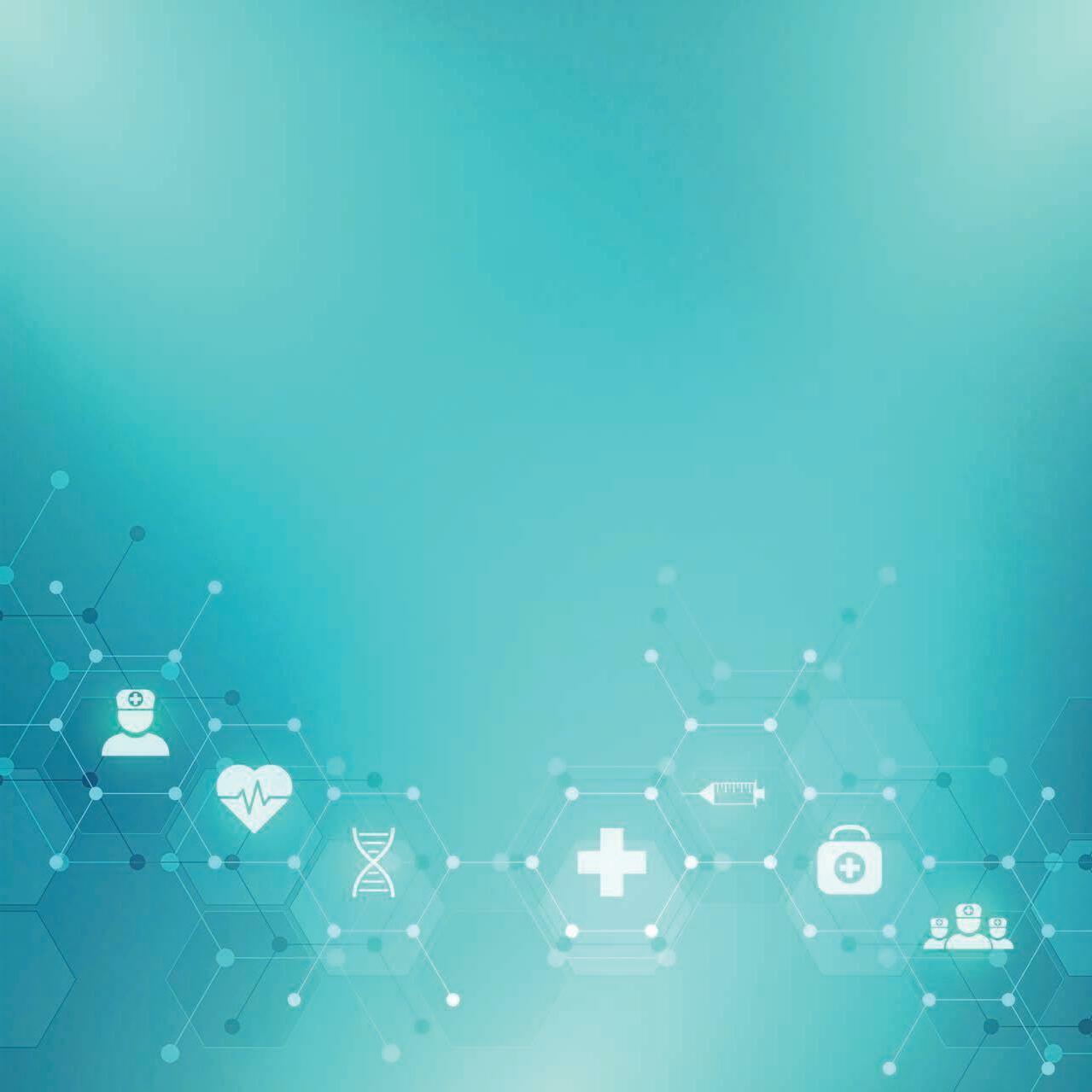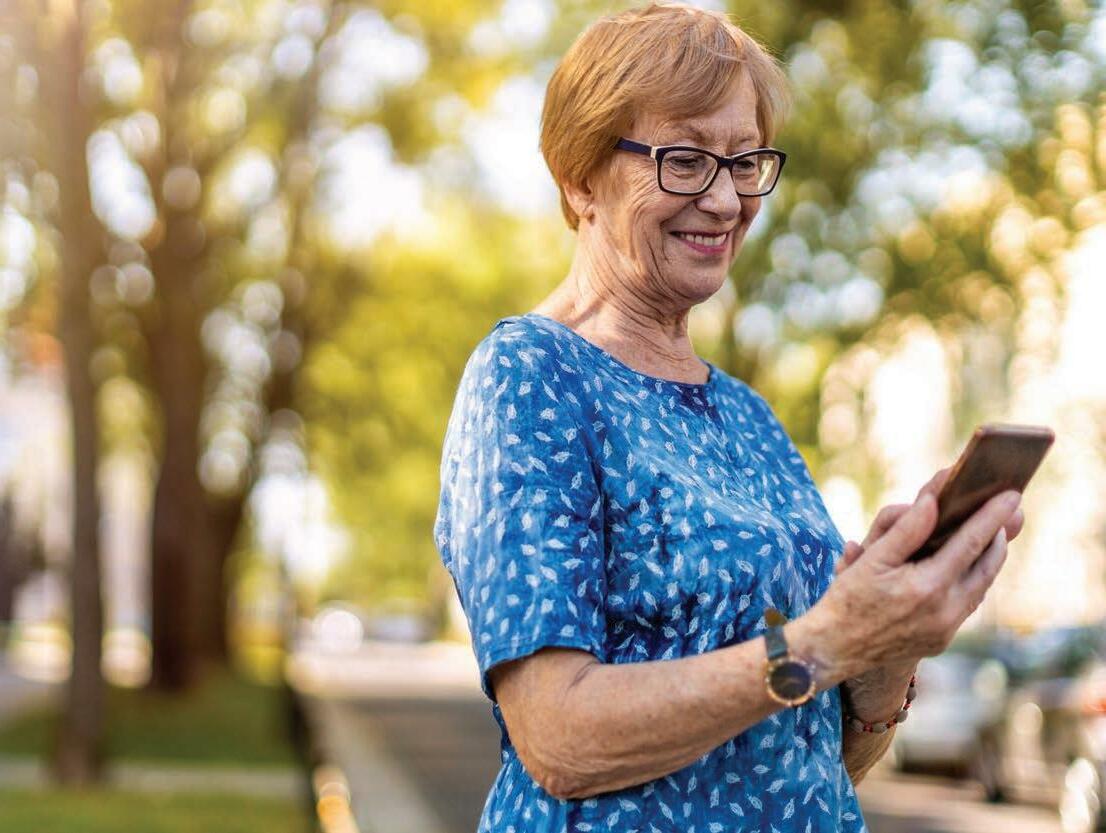
9 minute read
Safeguarding People’s Health
Bureau County Health Department continues fighting its way through a pandemic
By Brandon LaChance
March is here. There are St. Patrick’s Day celebrations, track meets, baseball and softball games to attend, and Easter plans to mark on the calendar. Then there is an anniversary no one wants to remember, think about, or talk about – Covid-19.
The virus, now a pandemic, sent a shock wave of wonder, sickness, death, debate, and change to the entire world in March 2020. Fast forward to the present, and the pandemic is still affecting every part of the world, including Bureau County, where the Bureau County Health Department is doing what it’s done from Day 1 – protect everyone in its county lines to the best of its abilities.
“For us, the biggest thing was the uncertainty when the pandemic started. Nobody knew exactly what this virus was or how it was going to affect people,” said BCHD Administrator Hector Gomez. “The media overworked the virus story. Then with the vaccines, there wasn’t enough of them produced at first. There weren’t enough supplies for the medical field of things that were needed to take care of people. There was a lot of panic.
“I think we adjusted well. We took a lot of comments about things that we don’t have control over. If the governor said, ‘We are getting this and that, and you’re going to be able to do this,’ most of that is for Chicago and the bigger cities. A small or rural health department like ours, we didn’t get everything he was talking about when he was talking about it. We had to wait.”
Gomez, who has been with the department for 16 years and has served as administrator since 2019, gave credit to his staff and all medical field professionals for how they’ve dealt with Covid.
With Gomez’s help, the BCHD was proactive and acted fast to serve the Bureau, Putnam, and Marshall county communities.
“We put measures in place really fast to help our staff. We let some work from home. We closed off some services because we do a lot with babies and the WIC program and the elderly,” Gomez said. “The health
See HEALTH page 6
Laurie Cumpton, Assistant Administrator at the Bureau County Health Department, prepares a Covid-19 vaccine.
SUBMITTED PHOTOS


The Moderna vaccine is available at the Bureau County Health Department in Princeton.
department stopped doing some of the face-to-face appointments with the WIC program and went virtual. We tried to close a few programs to keep anything from spreading on our end. Our staff did its best to stay the course. We knew we had to work together to get things done, and everyone has done a great job of continuing their high quality of work during a tough time.
“This is most definitely the craziest thing I’ve been through during my career. I’ve been in the health and medical industry for 27 years. I joke around people and tell them it’s easier to be in war than to battle this virus. We’ve been mentally shot from all angles, including individual community members, politicians, and county representatives, especially in the beginning when we didn’t have any vaccines.”
Gomez discussed the early days of the vaccine rollout and how difficult it was to be given such a short supply of vaccine.
“The Bureau County Health Department was given 200 vaccines a week when they were first available. We have a population of 35,000. Even if only half of the people wanted the vaccine, the vaccines we were given were not enough. If they wouldn’t have given us more and we stayed at 200 a week, it would have taken us forever to help the public,” he said.
BCHD Assistant Administrator Laurie Cumpton has dealt with all the challenges Covid-19 has brought about, whether they were staffing, state or federal mandates and policies changing, and public resentment or thankfulness. Cumpton has helped ensure the BCHD staff was prepared for anything.
“There was no choice, absolutely no choice,” said Cumpton, who is a registered nurse and has been at the BCHD for 10 years. “You just hit the ground running, and you go with the changes as they come. I think a key component for Bureau County was communication among the staff and keeping people updated. I listened to countless webinars and then would try to disseminate the information. Communication was the biggest tool we used to handle all of the changes, so everyone answering phones or dealing with the public would all be on the same page.
“We’re entering our third year of this. I would say that we have some fatigue, more so with the volume of information and how quickly it has been changing – the rules and the legalities. There is a notification system in the state of Illinois called SIREN. We’re notified through the message system of changes. Sometimes, there is a disconnect, and the CDC will announce to the news media before public health knows.”
The health department, located in Princeton, hasn’t had a single shutdown during Covid-19.
There have been staffing issues as employees and their families have gone through Covid, and there was one retirement.
“I think the whole Covid-19 pandemic showed us the weakness in public health and a pandemic response. The good thing is we can learn from it and improve,” Cumpton said. “On the other side, we all had to learn as we go because Covid is a new novel virus. It’s not like influenza, which we’re very fluent with. Even though it has been very hard, I think it can only help us strengthen the infrastructure to battle a future potential pandemic.
“We’ve been able to crosstrain and have everyone doing a little bit of everything. It has really helped out,” she said. “At the time, you just pull staff and multi-purpose them. In a small health department, you have to wear many hats.”
If you flip the TV channel to any news program, there is Covid talk or debate. The same can be said about radio stations, podcast airwaves, and anywhere

else a person is speaking.
The BCHD has heard it all as well.
“To be honest, early on the community was very grateful, and there was a lot of trust,” Cumpton said. “As the pandemic has wore on – not that we’ve become the enemy – we had to enforce quarantines, isolations, and promote vaccines. There are anti-vaxxers, the vaccine-hesitant, and the people who didn’t believe in Covid. There was some divisiveness. But it’s nationwide and, I think, worldwide.
“We base things off of what CDC and what Illinois Department of Public Health do. I think there is a disconnect between science and research and the public when it comes to understanding. Our role is just to protect the health of the public in general,” she said. “Those things weren’t meant to be punitive; they were meant to be protective.”
The calls coming to the BCHD are received by the office manager, Joyce Barajas. A department employee for 21 years, Barajas has dealt with all kinds of patients and situations, but Covid-19 has raised the call volume to an extremely high level at times.
“The last few weeks, we’ve had a high call volume, but now it has slowed down considerably. The spike was because of the newest strand of Covid, the Omicron. There was a spike in cases, so a lot of people wanted to get tested. It’s like any other situation, our first priority is to serve our community and meet their needs. We treated Covid19 like we would treat anything else. We scheduled them and got them tested,” Barajas said.
“In the beginning, we had more hostile calls, but now people are understanding and more patient. There are so many more resources now than there were before. There was limited testing and vaccines available in the beginning. Now, there are more options for everyone, so people are not as frustrated. I think the mindset for the staff here is we want to do whatever we can to provide services. I think we’ve just taken the good with the bad and kept moving forward with a positive attitude.”
Gomez, Cumpton, and Barajas have helped define the BCHD work environment with trust, friendliness, and professionalism. This is one of the main reasons Lauren Eckberg is happy with her decision to come to the health department a little over a year ago.
“I’m so happy that I came here. I worked at Illinois Valley Community Hospital for a short time before I went into public health,” said Eckberg, who is a 2005 Princeton graduate and is now a registered nurse after 15 years as a CNA. “I was unsure if I was going to like the transition because it was a new territory for me. But I knew some aspects of it. I really like communicable disease investigation, and I’m really interested in things like that.
“The transition has been awesome. Everybody here is fabulous, and they work so hard. The teamwork here is just amazing. I’ve worked so many places where it doesn’t feel like you’re a team. It’s all for themselves, where here everyone works together,” she said. “There hasn’t been any wavering in our mission to keep the public safe or our want to do our job. Of course, we have went through times when we’re tired or we’re stressed, but we keep pushing through for the public and everyone’s safety.”
Eckberg said she comes to work every day with a smile on her face knowing she works with people who have the same determination and desire to help as many people in the community as they can. When things get tough and they have a rough day, they’re able to talk to each other to make the next workday better.
And if they need it, there is always a candy bowl with every employee’s name on it.
“We eat a lot of candy,” Eckberg said. “Candy is a lifesaver for us around here.”




Connectingyoutoyourhealth withOSFMyChart



OSFMyChartgives secure,24/7online access to your electronichealth record from your computer ormobile device. WithOSFMyChart, you can: • Make appointments • View your medicalhistory • Send messages toyour care team •Ask for prescription refills • Access your family’s records •Gettestresults faster •UseeCheck-In for most visits before you ever leave home OSFMyChart keeps you in touchwith your health.

ScantheQR code orvisit osfhealthcare.org/mychart to learnabout gettingstartedanddownloadthe app.


